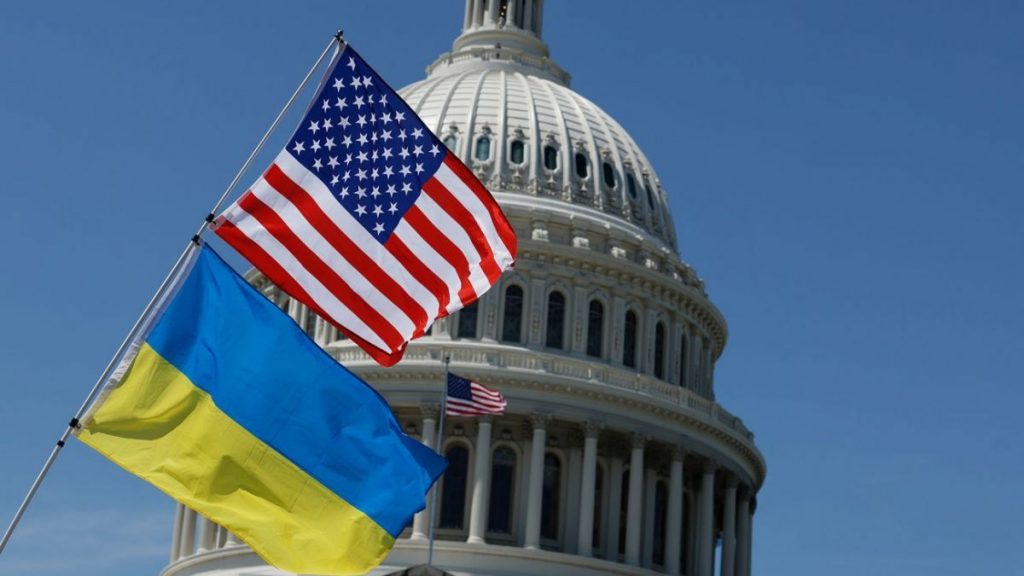The potential victory of Donald Trump in the 2024 U.S. presidential election and the new political balance in Congress raise many questions about the future of U.S. support for Ukraine. The dominance of Republicans in both the House of Representatives and the Senate poses challenges to the stable financing of military aid. However, Ukraine also gains new opportunities to strengthen its partnership with the U.S. by leveraging political and diplomatic tools, as well as engaging broad support from American society.
Stability of Support in Congress
The Democratic camp has traditionally been a reliable ally of Ukraine. Marcy Kaptur, co-chair of the Congressional Ukrainian Caucus, actively works on legislative initiatives aimed at supporting Ukraine. Her efforts go beyond military aid, as she also supports the development of cultural exchange programs that strengthen ties between citizens of both countries. Cooperation with international organizations and coordination with the European Union are also crucial aspects of her work, ensuring the synchronization of global efforts to support Ukraine.
There are also strong voices among Republicans. Key figures like Don Bacon and Brian Fitzpatrick emphasize the importance of long-term U.S.-Ukraine partnership. They focus on providing Ukraine with modern air defense systems, such as NASAMS, and lobbying for additional funding packages, stressing that supporting Ukraine is in the strategic interest of the United States to deter Russian aggression.
New members of Congress can also play an important role. Alexander Vindman, a military veteran and active advocate for Ukraine’s interests, promises to expand support based on his many years of experience in national security. His views significantly influence the formation of a new strategy for U.S.-Ukraine cooperation.
Political Sentiment in American Society
American society remains divided on the issue of aid to Ukraine. Polls show that about 50% of Americans support continued assistance. However, the responses are sharply divided along party lines: only 13% of Democrats believe the aid is excessive, while among Republicans, this figure reaches 42%.
Nevertheless, the results of recent elections show that politicians who support Ukraine retain the trust of voters, regardless of party affiliation. This indicates that the issue resonates not only as a matter of foreign policy but also as a domestic political concern. Voters see support for Ukraine as a way to strengthen the U.S.’s international authority and as a tool to counter global threats.
Actions of the New Administration and Special Representative
The appointment of Keith Kellogg as the U.S. Special Representative for Ukraine is a significant signal of the Trump administration’s readiness to support the country. Kellogg has endorsed the idea of continuing to supply arms to Ukraine, which is already taking place during the final weeks of President Joe Biden’s tenure. Kellogg believes that strengthening Ukraine’s position on the front line will also bolster Trump’s position in negotiations with Vladimir Putin.
Equally important is the potential appointment of Marco Rubio as Secretary of State. Known for his tough stance on international policy, especially concerning China, Rubio has repeatedly stated the need to strengthen U.S. alliances, with Ukraine playing a central role. His support for tougher sanctions against Russia and deeper cooperation with NATO points to the possibility of a more aggressive strategy toward the Kremlin.
The Significance of Ukraine for the United States
A stable and independent Ukraine is a vital element of the U.S.’s global strategy. Ukraine’s defeat in the war against Russia could lead to the erosion of international legal order and the creation of a power vacuum that would quickly be filled by authoritarian regimes. This would not only endanger Europe but also threaten global security, undermining democratic values and creating new challenges for the United States.
Maintaining support for Ukraine allows the U.S. to strengthen its position on the world stage, demonstrating leadership in defending democracy. Moreover, success in this endeavor could serve as a signal to other countries that democratic alliances are capable of countering aggression and ensuring stability.
Prospects for Continued Support
Despite the challenges, U.S. support for Ukraine has significant potential to be sustained. Both Democrats and a portion of Republicans understand the strategic importance of this issue. The appointment of experienced diplomats and military officials to key positions indicates the new administration’s willingness to develop its partnership with Ukraine.
For Ukraine, it is essential to continue active diplomatic efforts to garner support from both Congress and American society. Strengthening cultural, economic, and military ties can become the foundation for long-term cooperation that aligns with the interests of both countries.
Ukraine remains a critical component of the U.S.’s global strategy, and its success contributes to the strengthening of international order. In this struggle, U.S. support is crucial, making investments in bilateral partnerships strategically beneficial for both nations.
Kateryna Odarchenko for Ukrainian Week. The original blog in Ukrainian can be read here.
